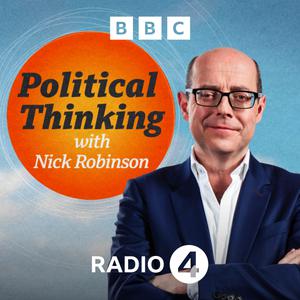
Third Sector
Third Sector
A weekly podcast from Third Sector, the UK’s lead…
- 34 minutes 4 secondsFunding for small charities
Lucinda and Emily are joined by Mary Rose Gunn, founder and chief executive of the small charity funder The Fore, to discuss the challenging funding environment facing small charities.
They start by listening to an account by Jane Evans, chief executive of West Norfolk Carers, about the growing difficulty of securing enough funding to keep the charity afloat.
Mary Rose explains why trusts and foundations have historically erred towards supporting specific projects rather than offering unrestricted funding to small charities.
She describes how this is shifting with the emergence of a new generation of largely self-made philanthropists and provides tips for small charities seeking to strengthen their funding applications.
Also in the episode, Debra Allcock Tyler, chief executive of the Directory of Social Change, outlines some of the common pitfalls associated with appointing corporate chairs to charity boards and provides suggestions for overcoming them.
Hear more from Jane Evans in Third Sector’s podcast documentary, The End of Charity: What is a world without charity?
Read Debra Allcock Tyler’s column: Corporate chairs – a blessing or a curse?
Do you have stories of people whose lives have been transformed for the better thanks to your charity? If so, we’d like to hear them! All it takes is a short voice message to be featured on this podcast. Email [email protected] for further information.
Tell us what you think of the Third Sector Podcast! Please take five minutes to let us know how we can bring you the most relevant, useful content. To fill in the survey, click here.
Hosted on Acast. See acast.com/privacy for more information.
3 May 2024, 8:30 am - 26 minutes 38 secondsHow to manage your volunteers
Lucinda and Emily are joined by Holly Penalver, founder of Indigo Volunteers and volunteer development manager at ShelterBox, and Karolina Praskova, a volunteer at the education charity Climate Ed.
Holly provides pointers for effectively managing the volunteer recruitment stage and stresses the importance of an induction to motivate new volunteers and make them feel appreciated. She also outlines the value of conducting an exit interview when volunteers leave an organisation.
Karolina describes her volunteer journey at Climate Ed, from her motivations for applying to the charity to the importance of simple, open communication channels with staff and the value she takes from volunteer social events.
Also in the episode, senior news reporter Emily Harle shares the headline figures from a record-breaking London Marathon.
Do you have stories of people whose lives have been transformed for the better thanks to your charity? If so, we’d like to hear them! All it takes is a short voice message to be featured on this podcast. Email [email protected] for further information.
Tell us what you think of the Third Sector Podcast! Please take five minutes to let us know how we can bring you the most relevant, useful content. To fill in the survey, click here.
Hosted on Acast. See acast.com/privacy for more information.
26 April 2024, 9:29 am - 31 minutes 47 secondsThe End of Charity episode 6: What is a world without charity?
In November 2023, the finance officer of West Norfolk Carers came to a devastating realisation: after more than a year of rejected funding applications, the charity wouldn’t be able to stay afloat for longer than four months.
Several months earlier, the Lankelly Chase Foundation, a grantmaker tackling severe social disadvantage and extreme marginalisation, had reached a similarly terminal conclusion.
After finding that its very existence perpetuated past harms and injustices, the foundation’s leaders decided the best way forward was to shut down.
In the final episode of The End of Charity, Lucinda Rouse is joined by Jane Evans and Julian Corner, the chief executives of West Norfolk Carers and Lankelly Chase, respectively, to ask: what’s next for the charity sector?
Rhodri Davies, Martha Awojobi and Eshe Kiama Zuri consider the road ahead for doing good, while Steve O’Donnell, a recipient of West Norfolk Carers’ services, lays out the impact of the recent rash of charity closures on vulnerable citizens.
If you have enjoyed The End of Charity, please consider rating and reviewing the series on Apple Podcasts, Spotify or your podcast platform of choice.
Series writer and presenter: Lucinda Rouse
Editor: Emily Burt
Executive producer: Ollie Peart
Production manager: Louise Hill
Series producers: Riham Maged, Penny Bell, Matt Hill
Studio producers: Nav Pal, Inga Marsen, Til Owen
Art director: David Robinson
Videographer: Julian Dodd
Video producer: Til Owen
Sub-editor: Rachel Jerden-Cooke
Contributing editor: Andy Ricketts
Voicing support: Emily Harle, Dami Adewale
Concept developer: Rebecca Cooney
Hosted on Acast. See acast.com/privacy for more information.
23 April 2024, 6:00 am - 26 minutes 57 secondsPlacing people at the forefront of tech innovations
Lucinda and Andy are joined by Matt Corbishley, deputy chief executive of Ashgate Hospice, to discuss the charity’s use of new tech solutions in its operations and service delivery.
Matt explains why Ashgate Hospice encourages staff to experiment with new forms of IT and artificial intelligence, and outlines the benefits of a digital apprenticeship programme to train existing team members.
He provides pointers for other charity leaders considering their approach to new technology and recommends resources such as Hospice UK, Forrester and Gartner.
Also in the episode, news reporter Dami Adewale considers the findings of recent research into legacy giving by Cancer Research UK and Remember a Charity.
Do you have stories of people whose lives have been transformed for the better thanks to your charity? If so, we’d like to hear them! All it takes is a short voice message to be featured on this podcast. Email [email protected] for further information.
Tell us what you think of the Third Sector Podcast! Please take five minutes to let us know how we can bring you the most relevant, useful content. To fill in the survey, click here.
Hosted on Acast. See acast.com/privacy for more information.
19 April 2024, 10:29 am - 27 minutes 50 secondsThe End of Charity episode 5: Power in the wrong hands
When The Times newspaper’s chief reporter Sean O’Neill broke the story that senior Oxfam aid workers had committed sexual abuse while working in the disaster zone of the 2010 Haiti earthquake, it sent shockwaves around the charity sector and wider society.
O’Neill reflects on his memories of uncovering the scandal, while experts including Chilande Kuloba-Warria and Martha Awojobi discuss how the very foundations of charity can create imbalances of power – and environments in which abuse can thrive.
How do the ways we think about the “haves” and “have-nots” perpetuate these inequalities? And how have the historical roots of charitable work steered us in this direction?
Kolbassia Haoussou, director of survivor leadership and influencing at Freedom from Torture, suggests how the balance can be tipped to allow the people that charities exist to serve to exercise power on their own terms.
With commentary from the philanthropy expert Rhodri Davies.
Hosted on Acast. See acast.com/privacy for more information.
16 April 2024, 6:00 am - 29 minutes 41 secondsThe traumatic side of charity work
Lucinda and Emily are joined by the author and mental health consultant Dimple Dhabalia.
Dimple warns of the dangers facing organisations that focus on their charitable mission at the expense of staff wellbeing. She notes the sense of guilt often felt by humanitarian workers suffering the effects of workplace trauma.
She provides pointers for how organisations can make staff wellbeing a cornerstone of internal policies and processes, including prioritising social connections, supporting rest and recovery and providing constructive feedback.
Also in the episode, senior news reporter Emily Harle provides insight into a recent piece of research into the “NGO halo effect”: a mindset which can lead to unethical behaviour going unchecked in voluntary organisations.
Do you have stories of people whose lives have been transformed for the better thanks to your charity? If so, we’d like to hear them! All it takes is a short voice message to be featured on this podcast. Email [email protected] for further information.
Tell us what you think of the Third Sector Podcast! Please take five minutes to let us know how we can bring you the most relevant, useful content. To fill in the survey, click here.
Hosted on Acast. See acast.com/privacy for more information.
12 April 2024, 9:15 am - 29 minutes 22 secondsThe End of Charity episode 4: The political chokehold
In May 2018, three climate activists called time on lukewarm campaigning over the climate crisis. They wanted a different and radical approach.
The plan: mass civil disobedience. The name: Extinction Rebellion.
And the first major act of the movement? Stage an occupation – of the Greenpeace offices in London.
Why is it that charities are so often perceived to be “the opposite of disruptive?” Experts including The Wildlife Trusts’ chief executive, Craig Bennett, and the domestic violence campaigner Janey Starling outline the legislative and political challenges that defang charities’ ability to campaign.
Lucinda also speaks to Enver Solomon, chief executive of the Refugee Council, and the Trussell Trust’s Emma Revie about the tussle encountered by charities seeking to both deliver services and advocate for change. With commentary from the philanthropy expert Rhodri Davies.
Hosted on Acast. See acast.com/privacy for more information.
9 April 2024, 6:00 am - 28 minutes 19 secondsWhat’s happening to individual giving?
Lucinda and Andy are joined by Philippa Cornish, head of client experience at the Charities Aid Foundation.
They discuss the implications of CAF’s report into individual giving, which found a smaller pool of donors giving more led to a total uplift in 2023 in spite of the median monthly figure remaining stagnant at £20 since 2017.
Philippa provides suggestions for how charities can encourage donors to adjust their monthly donations in line with inflation, including by enhancing trust, and to contribute to unrestricted funding pots.
Charity Changed My Life features the story of a family receiving support from the Martin House Children’s Hospice.
Do you have stories of people whose lives have been transformed for the better thanks to your charity? If so, we’d like to hear them! All it takes is a short voice message to be featured on this podcast. Email [email protected] for further information.
Tell us what you think of the Third Sector Podcast! Please take five minutes to let us know how we can bring you the most relevant, useful content. To fill in the survey, click here.
Hosted on Acast. See acast.com/privacy for more information.
5 April 2024, 10:31 am - 32 minutesThe End of Charity episode 3: Who are charities missing?
Why donate to a charity if you can just help out a fellow human yourself – or buy a piece of premium fashion that promises to generate a similar result?
In episode three of The End of Charity, Lucinda Rouse explores two very different alternatives to the charity model: mutual aid theory, and the rise of buzzy “for good” business.
The activist and founder of Mutual Aid UK, Eshe Kiama Zuri, discusses mutual aid as an alternative to the “oppressive dynamics” of traditional charitable structures, suggesting that charities could act more effectively and meet community needs by devolving funding to grassroots organisations.
Theo Clay, the former policy manager of the think tank New Philanthropy Capital, identifies the UK’s charity "deserts" – causes and geographical areas that receive insufficient funding.
And the finance and enterprise development expert Tej Dhami explores the opportunities and pitfalls for businesses looking to capitalise on socially conscious customers while attempting to solve some of the world's biggest problems.
Hosted on Acast. See acast.com/privacy for more information.
2 April 2024, 6:00 am - 34 minutes 33 secondsIn conversation with Dhivya O’Connor
Lucinda and Emily Burt are joined by Dhivya O’Connor, chief executive of the Cherie Blair Foundation for Women.
Dhivya provides insight into her previous experiences as an interim chief executive, describing the pros and cons of holding a short-term leadership role, and stresses the importance of cultivating a healthy organisational culture from the outset.
She talks about the foundation’s recent research into the use of artificial intelligence by female entrepreneurs and the need for charity leaders to be mindful of the high potential for women to face abuse in the online space.
Also in the episode, senior news reporter Emily Harle shares some snippets from a recent interview with Delyth Morgan, the outgoing chief executive of Breast Cancer Now.
Do you have stories of people whose lives have been transformed for the better thanks to your charity? If so, we’d like to hear them! All it takes is a short voice message to be featured on this podcast. Email [email protected] for further information.
Tell us what you think of the Third Sector Podcast! Please take five minutes to let us know how we can bring you the most relevant, useful content. To fill in the survey, click here.
Hosted on Acast. See acast.com/privacy for more information.
28 March 2024, 2:54 pm - 29 minutes 1 secondThe End of Charity episode 2: Can MrBeast save humanity?
Meet Jimmy Donaldson, perhaps better known as MrBeast – the 25-year-old YouTuber who some say is on the verge of sparking a revolution in online philanthropy.
With more than 236 million YouTube subscribers and an estimated net worth of $500m, MrBeast has turned his focus from filling houses with Lego bricks to curing blind people and building wells.
Lucinda asks Darren Margolias, the executive director of Jimmy’s charitable venture Beast Philanthropy, why MrBeast’s storytelling may have the edge over charities in reaching a younger generation of potential donors.
Plus, the philanthropy expert Rhodri Davies and the anti-racism consultant Martha Awojobi ask: is there anything charities could learn from the ways MrBeast taps into the natural human instinct to give back?
And exactly how ethical are his approaches to making the world a better place?
Listen to The End of Charity: Can MrBeast save humanity? on Apple Podcasts, Spotify or your podcast platform of choice.
Hosted on Acast. See acast.com/privacy for more information.
26 March 2024, 7:00 am - More Episodes? Get the App
Your feedback is valuable to us. Should you encounter any bugs, glitches, lack of functionality or other problems, please email us on [email protected] or join Moon.FM Telegram Group where you can talk directly to the dev team who are happy to answer any queries.
 Political Thinking with Nick Robinson
Political Thinking with Nick Robinson
 Newscast
Newscast
 Reasons to be Cheerful with Ed Miliband and Geoff Lloyd
Reasons to be Cheerful with Ed Miliband and Geoff Lloyd
 Politics Weekly UK
Politics Weekly UK
 The Rest Is Politics
The Rest Is Politics
 The News Agents
The News Agents